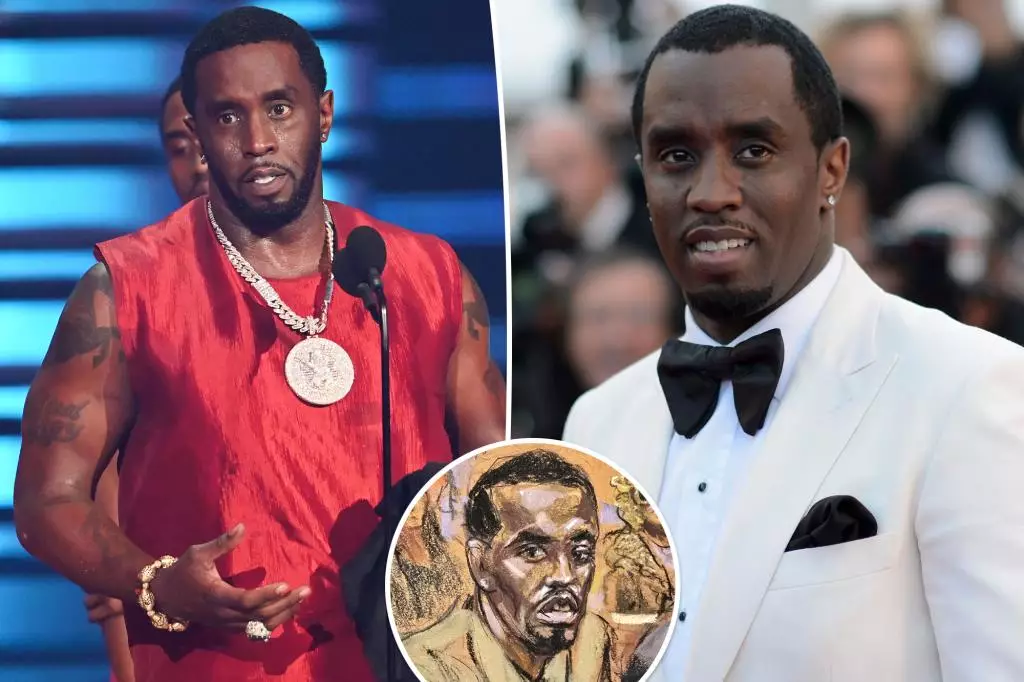The ongoing legal challenges surrounding Sean “Diddy” Combs are drawing significant public attention, particularly regarding the anonymity of those who bring allegations of sexual misconduct. A recent court ruling in the Southern District of New York has opened a complex discussion not only about the merits of the allegations against Combs but also about the broader implications for those who choose to accuse high-profile figures of heinous conduct.
At the heart of this case is a woman known only as Jane Doe, who claims that she was sexually assaulted by Combs at a party almost twenty years ago. In a decision delivered by Judge Mary Kay Vyskocil, Doe has been ordered to disclose her identity or face the dismissal of her lawsuit. This ruling underscores the delicate balance that courts must strike between protecting the privacy of individuals who make sensitive accusations and ensuring the integrity of the judicial process.
Judge Vyskocil acknowledged the valid concerns surrounding Doe’s desire for anonymity, especially given the potentially invasive nature of public scrutiny that accompanies high-profile cases. However, she also emphasized that by choosing to file a lawsuit against a well-known figure, Doe had placed herself in a realm where anonymity could not be maintained without compromise. This critical ruling raises questions about the expectations of privacy for those who seek justice through legal means, particularly in cases involving celebrities.
A History of Allegations Against Combs
The lawsuit filed by Doe is not an isolated case; it emerges from a troubling pattern of numerous allegations against Sean Combs, who has faced multiple claims of sexual assault and misconduct over the past year. Represented by Texas-based attorney Tony Buzbee, Doe is one among a cohort of 120 alleged victims. The breadth of these accusations spans almost thirty years and includes individuals of all genders and ages, showcasing a troubling narrative of sexual exploitation and abuse tied to Combs’ celebrity status.
Throughout these proceedings, Combs has continuously denied the allegations against him. His representatives have repeatedly stated that he has “never sexually assaulted anyone,” underscoring a stance of unwavering innocence despite the mounting claims. Nevertheless, the sheer volume of allegations puts a spotlight on the media mogul’s legacy, complicating the public’s perception of him as both an influential figure in the music industry and a man facing serious, life-altering accusations.
This case, particularly the ruling on anonymity, brings to light essential discussions on sexual assault and the complexities involved in seeking justice. Many victims may hesitate to come forward due to fear of public backlash or professional repercussions. The court’s insistence on disclosure could deter other potential victims from pursuing claims, perpetuating a cycle of silence surrounding sexual misconduct.
Conversely, the expectation of full transparency in legal matters can be seen as crucial for ensuring accountability among the powerful. It raises an important point regarding the balance between a victim’s right to privacy and the accused’s right to defend themselves publicly. In high-stakes cases involving celebrity status, the potential for sensationalism and public opinion to overshadow legal processes could undermine the pursuit of justice.
The Future of the Case and its Consequences
As the legal battle unfolds, possible outcomes for Combs and Doe could have far-reaching effects. While Combs has been indicted on charges including racketeering conspiracy and sex trafficking, his trial is set for May 2025—an event that coincides with the Met Gala, potentially elevating both media and public scrutiny. As the context of these allegations expands, the public must grapple with the complexities of justice, accountability, and the personal choices of those who face the daunting task of exposing their truth.
The case against Sean “Diddy” Combs encapsulates many critical issues surrounding #MeToo and the legal ramifications of sexual assault allegations. As the legal proceedings progress, society will be watching closely not only for the outcome but also for how it might influence future cases of a similar nature. The interlace of anonymity, accountability, and the quest for justice continues to evolve, revealing the many layers underlying such serious allegations.

